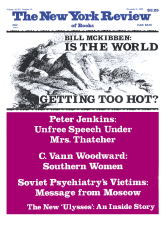The Democrats dodged the bullet and could wake up after the election heartened and surprised to discover that they may not need to wait for some disaster to the nation to restore their chance to inaugurate a president of their own. The one embarrassment that might have disabled their future all but permanently would have been a November like 1972’s, when George McGovern carried no state but Massachusetts, or 1984’s, when Walter Mondale carried no state but Minnesota and when the District of Columbia was the only sure refuge for the Democrats.
Even now they were reduced to a heavy-lidded night of flickering hope that they might have held George Bush to fewer than 400 of 535 electoral votes. Meager reward for prayer that such a result would be, its possibility offered cause for higher suspense than the Democrats had lately known in any recent hour after the polls closed in Kentucky.
They began to say at once that they would have won with a candidate less maladroit than Michael Dukakis. The steadfast decency that earned Dukakis the admiration of his Brookline, Mass., neighbors in the long run was undeniably of little service to him on short order anywhere else.
Still, if he must be judged a low card in a Democratic hand that looked as if it had been dealt no very high ones, except the singular Jesse Jackson, Dukakis had to contend with an electorate increasingly skewed to the middle class in times whose comparative peace and glistening, if inequitable, affluence provide scant promise for the challenging party.
Any Democrat would have needed to fall back upon the growing, if still insufficiently substantial, pockets of discontent; and if Dukakis was tardy with that recognition and his efforts to exploit it were hobbled by a style with no natural gift for the slightly demagogic, his critics might fairly ask themselves whether any flame less tempered could have set ablaze a landscape as sodden as our own.
This time the Democratic total included New York, Iowa, Minnesota, and Wisconsin, and the party fought Pennsylvania and Illinois until the last dog died. Their ancient tradition still shows some breath of life; and they have a base, however still constricted, that they can rely on and not defy all reason with their dreams of a White House again their property.
A heavy quotient of the credit for their survival is owed to President-elect Bush, who must be unique among his predecessors for being anointed to office after a campaign in whose course nearly 70 percent of a national poll sample expressed their disapproval of both candidates.
Bush begins with an image whose blots are so largely of his own making as to license the detached to wonder whether he has the personal capacity to cleanse them. First he chose a vice-president who started out as almost a zero and who had the talent to turn out a lower minus than he would have if the Republicans had been less circumspect about hiding him. The Quayle selection more than suggested that Bush fears associates too bold for his own peace and comfort; and he proceeded thereafter to submit himself abjectly to the advisers who at once contrived to make him seem tougher but altogether less likeable than previous experience had permitted us to imagine him.
These lapses excuse a deal of puzzlement over just how much grease is left on Bush after his painful climb up the pole from being an Eisenhower Republican to being a Goldwater Republican in 1964 to being a slightly liberal congressman and Senate candidate to being an anti-Reagan Republican in 1980 until his passable imitation of a Reagan Republican ever since.
He brings to us a history of shifts and scuttlings after his perceived necessities that can be explained only by a habit of suspending, if not mislaying, his character so persistent as to make us wonder whether he has not lost too much of it to still be possessed of the powers of decision he needs for the future.
And he will need them direly, facing as he does a Senate dominated by a Lloyd Bentsen flushed with his resurgence as the one national candidate who improved his reputation and by a Robert Dole still reddened with his grudge. He comes into the company of more travails than joys; and the Democrats can cheer up with the prospect that they may not need a national disaster to be salvaged; the possibilities of chaos and old night shadowing Bush’s command of his own business may well be up to doing the job by themselves.
This Issue
December 8, 1988



